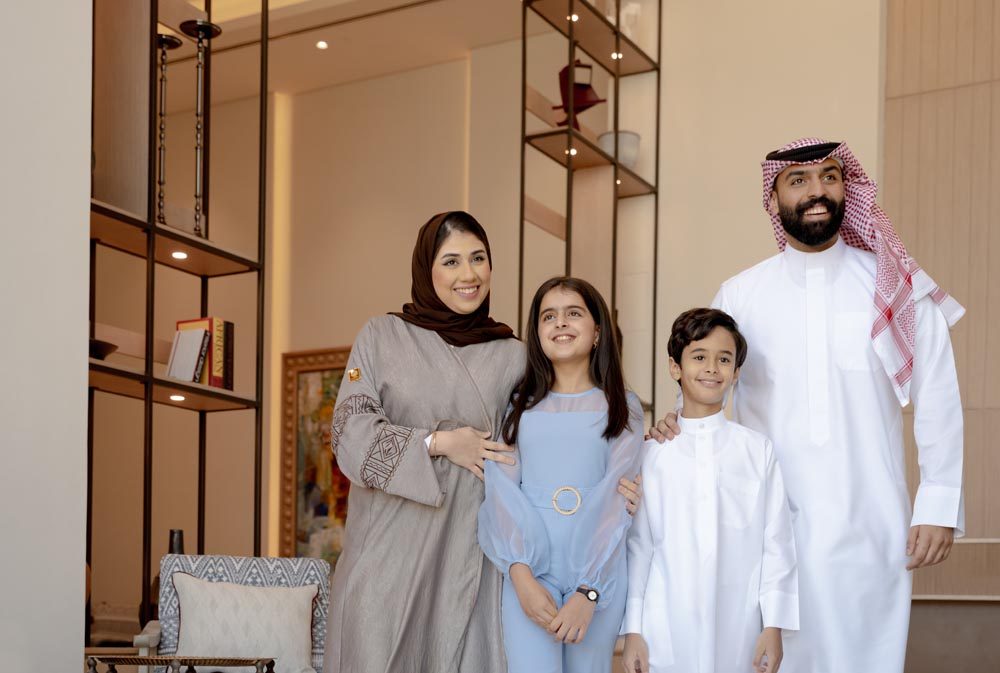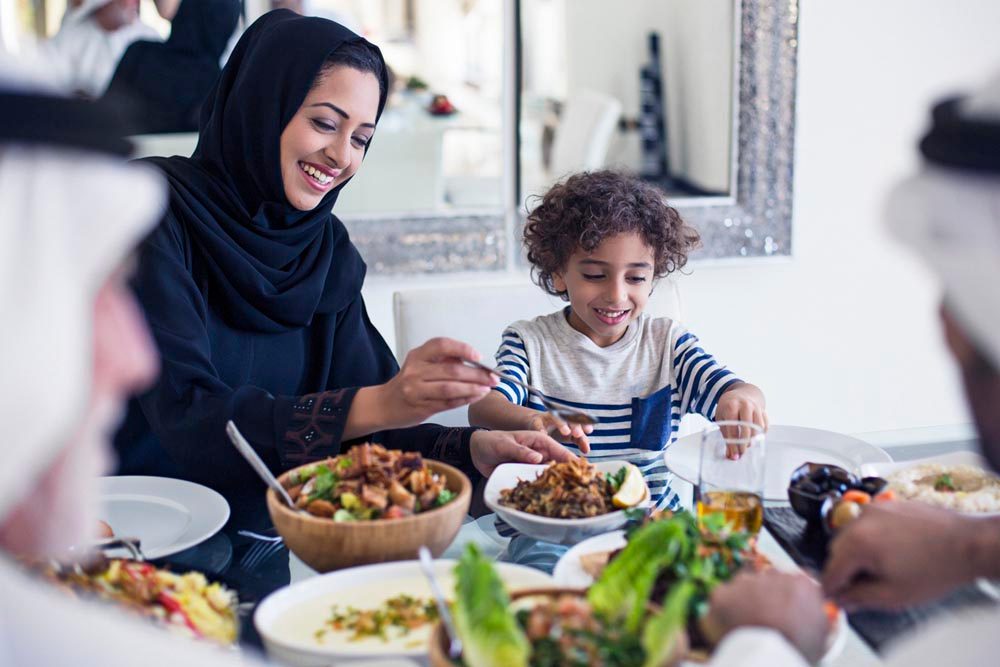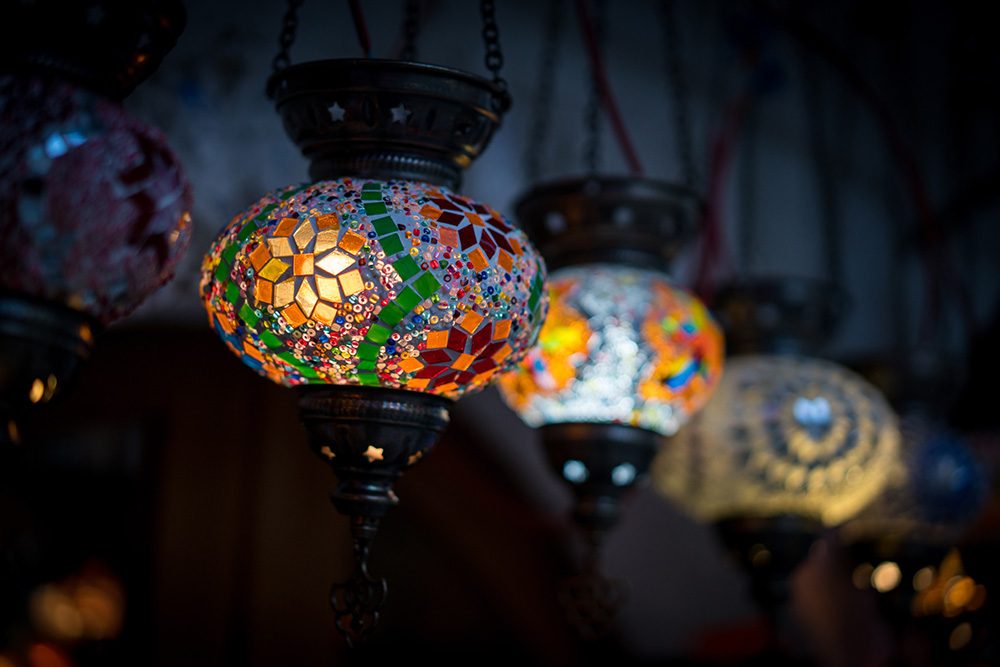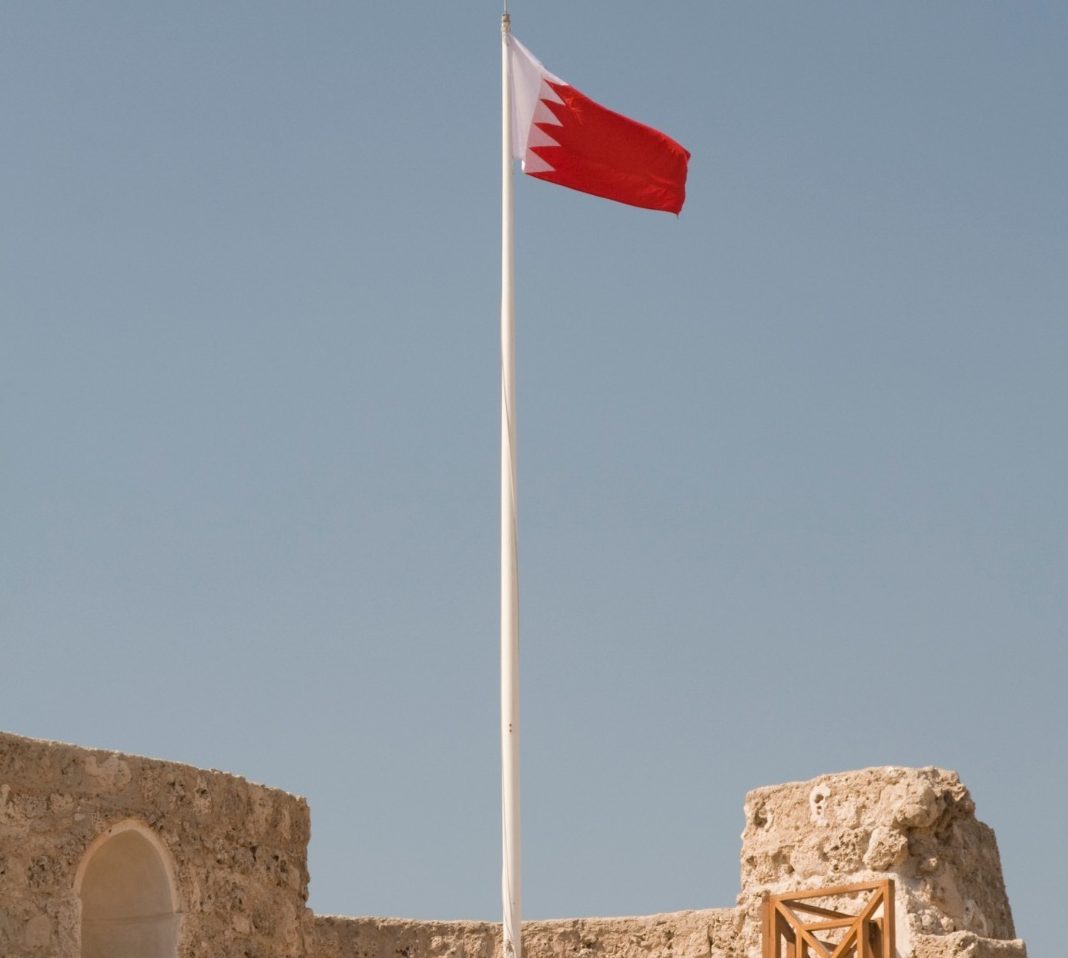
Culture Of Bahrain: Customs & Tradition
Welcome to our guide about the culture of Bahrain! Situated in the heart of the Gulf, Bahrain offers a mix of ancient traditions and modern marvels.
Join us on a journey as we uncover the essence of Bahraini culture, covering everything from etiquette and traditional customs to clothing, language, food and drinks, festivals, and the experience of living in this island nation. Read on to discover the rich culture of Bahrain and start planning get ready for your exploration of this enchanting country.
Bahrain Overview
Bahrain Geographic
Bahrain, officially known as the Kingdom of Bahrain, is the smallest Arab nation, situated in the Persian Gulf. The name 'Bahrain' derives from the Arabic word for 'two seas.' The country is characterised by a generally flat, arid archipelago, consisting of a low desert plain rising gently to a central escarpment. It is located to the east of Saudi Arabia and north of Qatar.
Manama, its capital, is a bustling cosmopolitan city renowned for its modern skyline and historic
landmarks. The country is comprised of 33 islands, with Bahrain Island being the largest and most populous. Surrounded by tranquil turquoise waters, Bahrain enjoys a mild climate, making it an ideal destination for outdoor activities and beach holidays.
About us:
Bahrain Weather
The climate in Bahrain is characterised by a prolonged, hot summer from May to September, with temperatures often exceeding 35°C. The best times for hot-weather activities are from early April to mid-May and from mid-October to late November.
Winters are comfortable and dry, making it an ideal time to visit. Seasonal temperature variations and humidity levels significantly impact the climate, with the hottest month being July and the coolest being January.
Languages in Bahrain
Arabic is the official language of Bahrain, coexisting with English, which is widely spoken by the population and is mandated as a second language in schools.
Beyond Arabic, Farsi and Urdu thrive among the non-Bahraini community, reflecting the rich culture in Bahrain. While Modern Standard Arabic prevails for official and educational use, the linguistic landscape encompasses various dialects, shaping the linguistic tapestry of urban and rural areas. Media outlets like Al-Ayam (Arabic) and Bahrain Tribune, Gulf Daily News (English) also contribute to the linguistic mosaic.
Ethnic and Religions in Bahrain
Bahrain is a diverse nation with a majority Arab population. Islam is the main religion, with Sunni and Shia Muslims coexisting peacefully. The country also hosts communities of Christians, Hindus, Buddhists, and
others.
Despite differences, Bahrain embraces tolerance, fostering a harmonious society where people of various ethnicities and religions live together.
Bahrain Economy
Bahrain was the first location in the region in which oil reserves were discovered. As a resultresult, it has become a wealthy nation. This wealth has been invested in free education and free health care, resulting in relatively high literacy and life expectancy.
In recent years, the government has prioritised economic diversification efforts, promoting sectors such as finance, tourism, manufacturing, technology, and logistics to further bolster growth and sustainability. As a key financial hub in the Gulf region, Bahrain boasts a thriving banking and financial services sector, attracting international investors and multinational corporations. Additionally, tourism plays a significant role in the economy, with the country's rich cultural heritage and modern amenities drawing visitors from around the world.

Where to stay in Al Liwan, Bahrain
Planning to relocate to Bahrain? Place yourself in the area that provides easy access to key business districts, educational institutions, and leisure attractions, ensuring convenience for both work and exploration of Bahrain culture. Located in the vibrant neighbourhood of Hamala, Fraser Suites Al Liwan, a modern serviced apartment hotel situated within the Al Liwan shopping mall, offers an ideal accommodation solution for expatriates considering relocation to Bahrain with their families.
Spanning across three floors, each of our luxury, fully furnished apartments, ranging from one-, two- to three-bedroom options, offers a 5-star experience complete with convenient amenities, hospitality services, and 24/7 security. Harmoniously blending tradition with modernity, each apartment boasts contemporary furnishings equipped with necessary utilities and an entertainment system, ensuring optimal comfort for extended vacations, business professionals, or families embarking on a fresh start in Bahrain.
Eitquette and Manners in Bahrain
Bahrain is deeply rooted in warm greetings, elaborate gift exchanges, and generous hospitality, which is especially pronounced during meals. Social interactions involve extensive discussions about health and family, with everyone standing when someone enters, underscoring the significance of these encounters.
Meeting etiquette
Where greetings are offered with enthusiasm, accompanied by warm smiles and direct eye contact. Men typically share handshakes and cheek kisses, while women often embrace with hugs and kisses, fostering a familial atmosphere. These unhurried greetings involve leisurely conversations on various topics, enhancing the sense of genuine connection.
Gift giving etiquette
This is a vital aspect of Bahrain's culture, with extended family and close friends exchanging gifts on occasions like birthdays, Ramadan, Eid, and Hajj. Appropriate gifts may include houseplants, imported chocolates, or items representing one's home country.
When presenting gifts, using both hands is customary, and gifts are not opened upon receipt. It's essential to note that alcohol should be avoided in gift selections.
Dining etiquette
Bahrainis enjoy entertaining friends and family in their homes. Same-sex entertainment is often preferred, and punctuality is valued. Guests are encouraged to reciprocate hospitality, and when dining on the floor,
specific table manners are observed, such as sitting cross-legged or kneeling on one knee. The right hand is used for eating, while the left hand is considered unclean in Islamic culture.
Tipping
Tipping is a common and expected practice in Bahrain, extending gratitude for services. Even when restaurants include a service charge, it is customary to tip waiting staff. In services like taxis and hotels, a 10% tip is typical. Carrying loose change, including fils, is advisable for convenient tipping in various situations.

Bahrain Traditional Clothing
Traditional attire reflects the culture of Bahrain, where men continue to embrace timeless styles suited for the local climate, and women express their individuality through the diverse and vibrant choices in abayas and festive dresses.
Men traditionally wear the thobe, a loose, ankle-length robe made from fine white cotton or heavier wool in winter. The thobe is often accompanied by the keffiyeh, a square scarf worn over the head, and the agal, a thick black cord to hold the keffiyeh in place. Some occasions call for a bisht, a soft woollen cloak usually in black, brown, or grey, worn over the thobe.
Bahraini women commonly dress conservatively, with the abaya being a popular choice. This long, black gown with long sleeves drapes elegantly around the body, often adorned with embroidery and decorative borders. Many women also cover their heads with a headscarf, with variations such as the hijab or nikab. Festive dresses like the jalabiya add colour to women's wardrobes, featuring bright red hues and intricate gold embroidery.

Food and Drink in Bahrain
Bahrain's culinary culture weaves traditional delights into a rich heritage. From iconic dishes like machbous, a blend of meat or fish with rice, to the sweet muhammar with dates, Bahrain's traditional foods offer a symphony of flavours. Arabian delicacies like falafel, shawarma, and savoury pastries add diversity, while the significance of fresh fish, especially Hamour, reflects culinary heritage.
Qoozi, grilled lamb stuffed with rice, epitomises Bahraini gastronomy, complemented by the traditional flatbread Khubz. Coffee, known as Gahwa, symbolises a warm welcome, and Sheesha (hookah) in open-air coffee shops embodies leisurely conversations. Amid Muslim holidays, large family feasts mark celebrations, with Ramadan culminating in joyous gatherings featuring traditional fare.
Mealtimes are important family gatherings in Bahraini households. While breakfast often consists of khobez, scrambled eggs with noodles, and cooked beans, lunch is considered the main meal and is a time for the family to come together. This usually occurs around 2 or 3pm and features large portions, with popular dishes including spicy rice dishes like biryani, mixed vegetables called salona, and the traditional harees, especially during Ramadan.

Festivals in Bahrain
Bahrain hosts several festivals throughout the year, celebrating its rich cultural heritage and diverse community. Some of the prominent festivals in Bahrain include:
Bahrain National Day
Date: December 16th every year
Commemorates Bahrain’s independence from British colonial rule, the day is marked with parades, fireworks, cultural performances, and various festivities across the nation.
Eid al-Fitr and Eid al-Adha
Date: Varies (during the 9th month of the Islamic calendar)
These two Islamic festivals are widely celebrated in Bahrain. Eid al-Fitr marks the end of Ramadan, the holy month of fasting, while Eid al-Adha commemorates the willingness of Ibrahim (Abraham) to sacrifice his son as an act of obedience to God. Both Eids are celebrated with prayers, feasting, giving of gifts, and social gatherings.
Bahrain Summer Festival
Date: Varies during the summer months (April-October)
Held annually during the summer months, the Bahrain Summer Festival showcases a diverse range of cultural performances, including music, dance, theatre, and art exhibitions. The festival aims to promote cultural exchange and entertainment for residents and visitors alike.
Bahrain International Music Festival
Date: October annually (specific dates may vary)
Bahrain International Music Festival brings together musicians and performers from around the world to showcase their talents in various genres, including classical, jazz, contemporary, and traditional music. Audiences can enjoy concerts, workshops, and masterclasses during the festival.
Spring of Culture Festival
Date: Varies during the spring months (February-April)
Organized by the Bahrain Authority for Culture and Antiquities, the Spring of Culture Festival celebrates Bahrain's cultural heritage through a series of events, including art exhibitions, film screenings, literary readings, and live performances. The festival aims to promote cultural exchange and appreciation among locals and visitors.

Cultural Values and Society in Bahrain
Islam
Bahrain's culture is deeply rooted in Islam, shaping personal, political, economic, and legal aspects of life. While the majority of Bahrainis practice Islam, about 70% are Shia Muslims, leading to historical conflicts as the country is governed by a Sunni ruling family.
Islam originated from present-day Saudi Arabia, and the Prophet Muhammad, the last of God's emissaries, brought a universal message for all of mankind through the Quran. This holy book, along with the Prophet's actions (Sunnah), serves as the foundation for Islamic guidance.
Muslims in Bahrain have specific obligations, such as praying five times a day, observing Friday as the holy day, and fasting during Ramadan, which includes restrictions on eating, drinking, and other activities. The breaking of the fast (iftar) is a daily celebration during Ramadan, marked by gatherings with family and friends.
Family/Tribe
In terms of social structure, familyplays a central role in Bahrain. Loyalty to the family takes precedence over other social relationships, and nepotism is positively viewed for ensuring trust in hiring. With households often consisting of extended families living under one roof, including parents, children, grandparents, and sometimes uncles and their families. This structure is a significant aspect of the culture of Bahrain, reflecting its emphasis on family unity and support.
Women
Women in Bahrain are notably more publicly active than in many Arab countries. While some wear head-coverings, many Bahraini women are not completely veiled. They are highly educated, well-represented in major professions, and about one-quarter work outside the home. Importantly, women in Bahrain have the right to vote, reflecting the balance between tradition and progress in the culture of Bahrain that is deeply entwined with Islam.

Frequently Asked Questions About Bahrain Culture
1. What is the main culture in Bahrain?
Bahrain is a Muslim country, and there are rules to support its important practices. These include fasting during Ramadan from sunrise to sunset for those taking part.
2. What is the family culture in Bahrain?
Usually, children in Bahrain only move out of home when they get married. In most Bahraini families, mothers stay at home and don't work. If she does, the father is still the main financial supporter of the family. Both parents have equal authority, but sometimes the father has more power in the family.
3. How to behave in Bahrain?
- Avoid physical contact with another adult in public, such as holding hands.
- Wear modest clothes.
- Behave politely and keep things discreetly
- Be respectful of religious and social customs to avoid offending local sensitivities. For instance, women should cover their arms and legs, and men should avoid wearing shorts in public.
4. What are the beliefs in Bahrain
In Bahrain, Muslims, including Sunni and Shia, live peacefully alongside followers of other religions like Buddhism, Hinduism, Christianity, and Catholicism. Conflicts based on religion are rare, reflecting the nation's harmonious religious coexistence.
You May Also Like
Contact Us
Building 282, Road 1403, Block 1014, Al Hamala, Bahrain

Not a Fraser World Member? Sign up today for free membership and enter a world of privileges
- Complimentary Stays
- Up to 20% off Best Flexible Rate
- Room Upgrade
- Early Check-in
- Exclusive Rewards
- Welcome Voucher





























